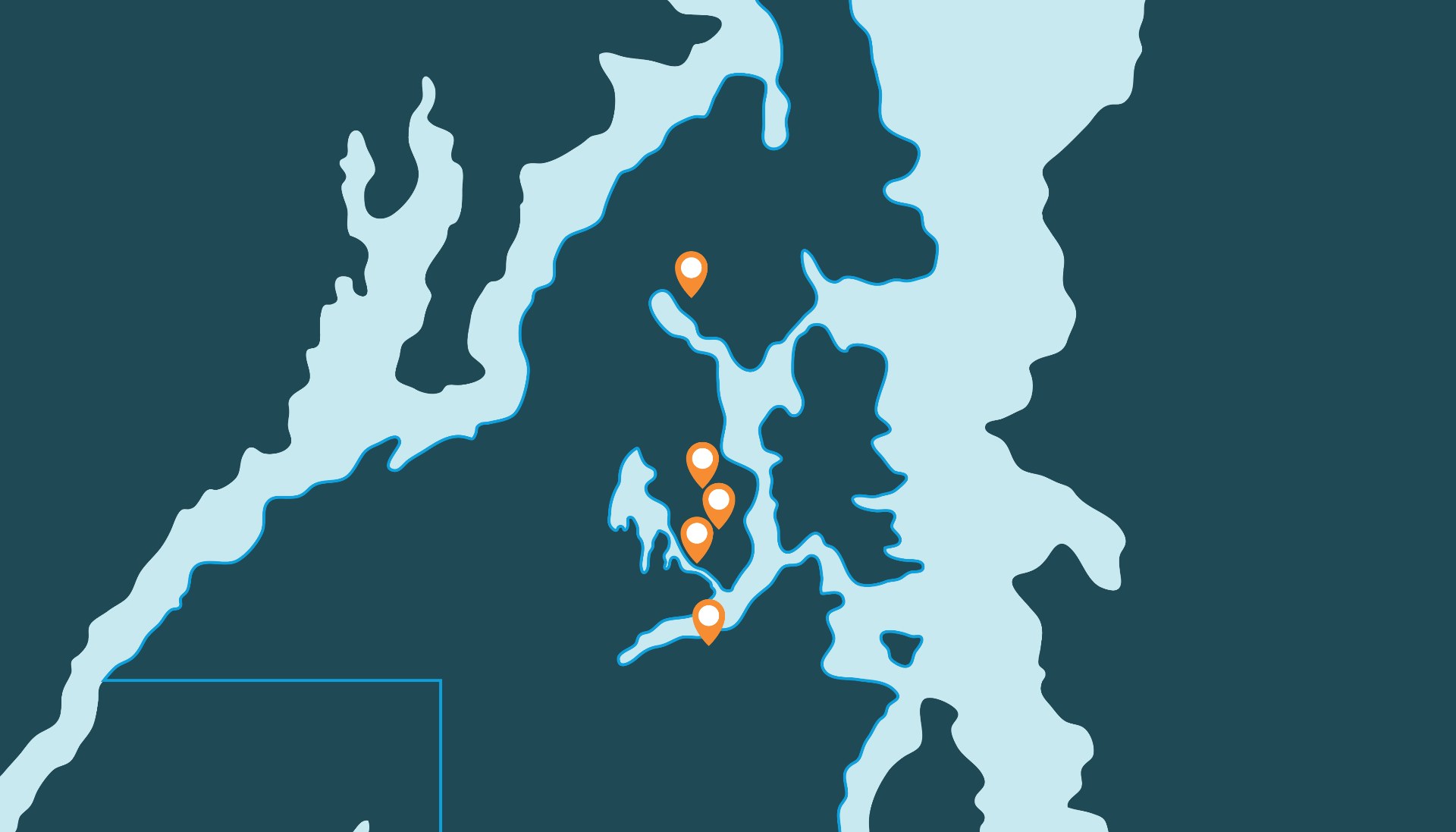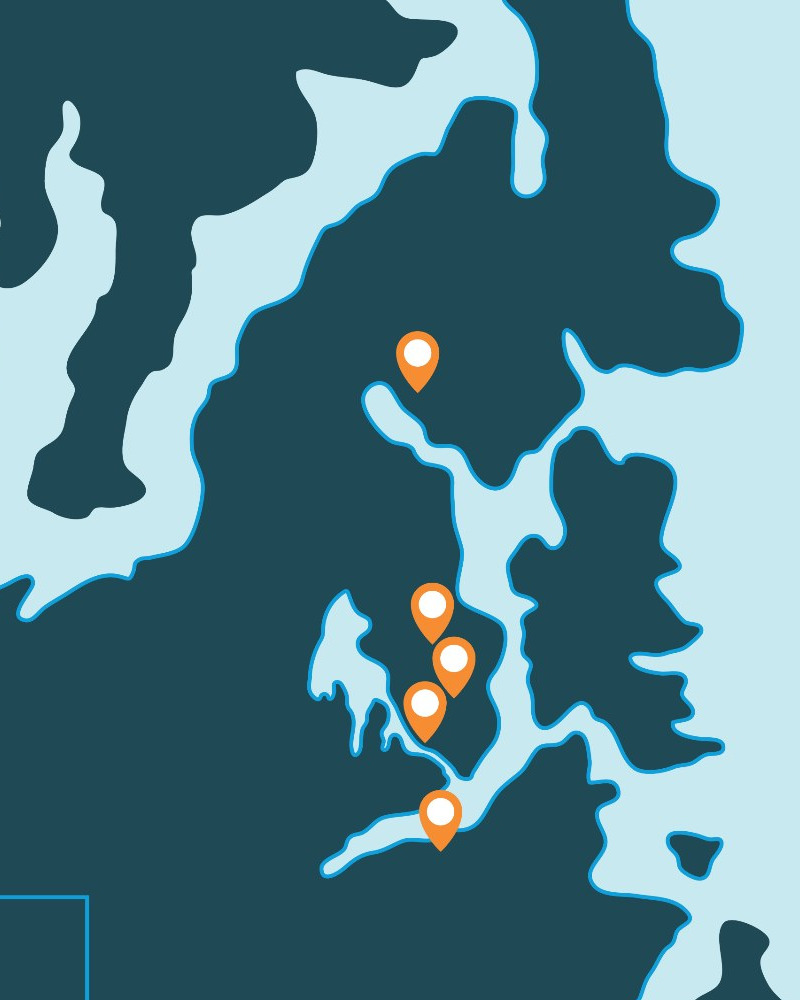LifeCare Foodbank provides emergency food relief for our neighbors in the South Kitsap / Olalla area.
Address:
Port Orchard, WA98367
LifeCare Foodbank provides emergency food relief for our neighbors in the South Kitsap / Olalla area.
Our Mission: Offering Hope and Opportunity through comprehensive recovery-oriented behavioral healthcare.

Paula’s son, who is on the autism spectrum, was being physically bullied at school, and both he and his mother were being harassed in their neighborhood. As his behaviors became increasingly difficult to deal with, she fell into a depression. “His crisis sort of sent me into my own crisis.”
She recalls spending three days crying in her living room before seeking help at Kitsap Mental Health Services, where a counselor connected her with WISe. “At the time, I was just sort of shutting down and giving up,” she said.
“WISe gave me a parent-to-parent support person, and she was just wonderful as far as giving me resources and support and great one-on-one parental advice.”
The family’s WISe team also included a counselor for the child and a care coordinator.
Paula said counseling has helped her son improve his impulse control and be more open to talking about his problems.
The care coordinator connected the family to support services that helped Paula advocate for her son’s special needs, resulting in him being placed in a more appropriate learning program.
The team also helped Paula get support from the Developmental Disabilities Administration, which now provides weekly respite care for her son so that she can grocery shop, run errands and do chores.
She’s particularly grateful for the WISe team’s help getting through a critical period when her son was hospitalized after sneaking out of their locked house at night and trying to drink gasoline.
“There were just amazing as far as support,” she said.
“They took quite a bit of my grief and they were just a rock for me to lean on.”
The family’s graduation from the WISe program in September of 2024 was bittersweet. It was nice to look back on how far they’d come, Paula said. But it was difficult to let go of a support system that had become such a big part of their lives.
“We still have our struggles. We’re not 100-percent cured. But we’re doing okay. We’re doing good,” she said. “And I do know that if we ever need to come back to the WISe team, we can.”
24/7 $20,100,572
Adult Services $23,842,022
Child & Family $12,522,735
Emergency Services $3,940,844
General & Admin $6,953,112
Total: $67,359,112
Donations $80,609
Investment Income $2,241,047
Medicaid Care $48,099,221
Other Contracts/Misc $22,144,874
Private Fee/Insurance $863,091
Total: $73,428,841
Medicaid 74%
Medicare 10%
SBH-ASO* 5%
Commercial Insurance 4%
Personal Payment (Cash – No Insurance) 4%
Other Contracts 3%
*Salish Behavioral Health – Administrative Service Organization funds some services, including crisis outreach, for individuals who are low-income, uninsured and/or not eligible for Medicaid.
For the past 47 years, Kitsap Mental Health Services has been rising to meet the behavioral health challenges of our community, turning crisis to healing one person at a time.
As the second largest healthcare provider in Kitsap County, we’ve embraced our growing mission, finding the gaps in existing services and filling them with innovative, compassionate solutions like the ones highlighted in this Community Impact Report:
TMS – Transcranial Magnetic Stimulation is a powerful tool against medication-resistant depression, but until now it hasn’t been available to people on Medicaid. In 2024, KMHS – led by our Chief Medical Officer Dr. James Hughes – won a grant to bring the life-changing treatment to underserved populations in our community. Meet some of the clients who have found hope through TMS.
Co-occurring Disorder – An estimated 25-30 percent of KMHS clients have a substance use disorder in addition to a mental health challenge. That’s why we created our Co-occurring Disorder program in 2024. The result is streamlined, coordinated care that is easier to access and gives clients more control over their recovery. See how one client gained new tools as a result.
WISe – When young people and their families are facing the toughest times of their lives, our Wraparound Intensive Services (WISe) team is there for them 24/7. WISe provides a level of care between inpatient and traditional outpatient treatment that’s designed to help families stay together, identify their strengths and work toward long-term stability. Learn why one client said they’re almost miracle workers.
As you can see, KMHS is always reaching, always rising higher to be the community mental health center our clients and community deserve. One that is strong and compassionate, steeped in evidence-based practices and offering highly effective clinical therapies across the spectrum of community needs.
Thank you for reading this report and learning more about how our staff embraces innovation and meets challenges head-on with a culture of optimism and hope, strengthening and lifting up the movement that is KMHS in this community.
Together, we RISE!
Sincerely,

Monica Bernhard
The 72-unit supportive housing complex for chronically homeless adults opened in May 2022. Residents range from 23 to 74 years old, and include 29 domestic violence survivors and 12 veterans.
During the First Year of Operation:
Percentage of students who answered “yes” to the following: During the past 12 months, did you ever feel so sad or hopeless almost every day for two weeks or more in a row that you stopped doing some usual activities?
Compared to 35.5%, 39%, and 47.4% respectively in 2021.
Percentage of students who reported being bullied in the past 12 months:
Compared to 23%, 16.3%, and 13.4% respectively in 2021.
Percentage of students who said they had seriously contemplated attempting suicide in the past 12 months:
Compared to 20%, 21.6%, and 23.2% respectively in 2021.
Source: Washington State 2023 Healthy Youth Survey – Go to https://www.askhys.net/ for more data.
As a member of KMHS’s Youth Mobile Crisis Outreach Team, Stephanie Powers never knows what the day will bring. She may respond to a person in crisis over the phone or visit them at home or school to de-escalate the situation, ensure the person’s safety and connect them with resources.
“It’s never straightforward,” she says. “It’s a very abstract job.”
| 7:00 AM | Shift begins; check in with night shift to ensure continuity for ongoing cases |
|---|---|
| 8:00 AM | Outreach presentation to regional high school counselors |
| 8:55 AM | Drive to a South Kitsap middle school for a “warm hand-off” of youth to new support services |
| 9:20 AM | Receive call from a Central Kitsap middle school counselor on the way to South Kitsap |
| 9:35 AM | In South Kitsap, meet with a youth’s mom, dad, school support staff and new school-based WISe intensive support team to discuss care for young person whose behaviors have led to severe weight loss; resolution includes therapy for the youth and an appointment at Kitsap Resolution Center for parents to work on co-parenting skills |
| 11:20 AM | Lunch |
| 12:00 PM | Answer emails and enter progress notes in client charts |
| 1:20 PM | Follow up with a client by phone |
| 1:40 PM | Follow up with a client at the Crisis Triage Center |
| 2:15 PM | Drive to a Central Kitsap middle school to provide support with school counselor for youth who is drawing pictures that indicate suicidal thoughts; refer to WISe intensive support team |
| 4:35 PM | Answer crisis call with adult who tried to suffocate themself; talk to paramedics and caller’s family; client is taken to St. Michael Medical Center |
| 5:55 PM | Follow up with a youth’s parents to offer resources covered by their insurance |
| 7:00 PM | Shift ends |

De-escalates the crisis, provides resources, follows up within 24 hours
De-escalates the crisis, creates a safety plan and treatment plan, provides resources, follows up with stabilization services for up to two weeks
Conducts evaluations to determine if someone is experiencing a mental disorder or substance use disorder so severe that they are a danger to themselves or others, and need to be involuntarily detained for treatment
24/7 stabilization services for adults, who may stay at the center for up to five days
| Donations | $57,706 |
|---|---|
| Investment Income | $2,350,966 |
| Medicaid Managed Care | $40,516,387 |
| Other Contracts/Misc | $16,788,859 |
| Private Fee/Insurance | $439,572 |
| Total | $60,153,490 |
| 24/7 Evaluation & Treatment, Residential, Supported Housing | $12,105,599 |
|---|---|
| Adult Services | $16,363,069 |
| Child & Family Services | $10,222,802 |
| Emergency Services | $5,106,174 |
| General & Administrative | $13,284,787 |
| Total |
$57,082,431
|
Click on any of the pins below for more information about each location.


KMHS North Kitsap
Adult Services, Child & Family Outpatient Services
1050 NE Hostmark Street, Suite 250, Poulsbo, WA 98370

KMHS Child & Family
WISe Services
1651 NE Bentley Drive, Bremerton, WA 98311

KMHS Main Campus
Kitsap Mental Health Services
5455 Almira Drive NE, Bremerton, WA 98311

KMHS Bremerton
Sheridan Road Child & Family Outpatient Services
900 Sheridan Rd, Suite 105, Bremerton, WA 98310

KMHS South Kitsap
Adult Services, Child & Family Outpatient Services
1341 Bay St., Suite 110, Port Orchard, WA 98366


KMHS North Kitsap
Adult Services, Child & Family Outpatient Services
1050 NE Hostmark Street, Suite 250, Poulsbo, WA 98370

KMHS Child & Family
WISe Services
1651 NE Bentley Drive, Bremerton, WA 98311

KMHS Main Campus
Kitsap Mental Health Services
5455 Almira Drive NE, Bremerton, WA 98311

KMHS Bremerton
Sheridan Road Child & Family Outpatient Services
900 Sheridan Rd, Suite 105, Bremerton, WA 98310

KMHS South Kitsap
Adult Services, Child & Family Outpatient Services
1341 Bay St., Suite 110, Port Orchard, WA 98366
KMHS has five locations throughout the county to help clients access care close to home. Most individuals begin their recovery journey with an initial assessment at our Main Campus in Bremerton, which also houses crisis, inpatient and residential treatment services. Clients may choose to receive ongoing outpatient care at a satellite location, depending on service and staff availability.
Our bilingual Inclusive Community Care team offers mental health support to our Spanish-speaking community, including individual, family and group therapy. We can also provide care in almost any language through contracted interpreter services.
As of 12/31/2023
At Kitsap Mental Health Services, hope is our guiding light. It’s part of our mission statement and we proudly proclaim “Hope Lives Here” on colorful parking lot banners at our Almira and Bentley locations.
In 2023, we became a Certified Community Behavioral Health Clinic (CCBHC). At its heart, the designation is about spreading hope to some of the most vulnerable members of our community.
It means KMHS has met a federal standard for the quality of care we provide to more than 5,600 clients a year who are primarily Medicaid-eligible, underinsured or uninsured. In addition, we’ve committed to expanding access to that care and being more responsive to our community’s needs.
If hope is lighting our path, it’s community connections that will help us get where we need to go. Because we are a CCBHC, we are committed to collaborating more closely with our community partners and doing a better job of coordinating care.
We’re also taking our services where the community needs are greatest. For example, to support individuals living unhoused in downtown Bremerton, we partnered with the Salvation Army to begin offering KMHS services at their 6th Street location.
Becoming a CCBHC is not something we attain, check off a box, pat ourselves on the back, and then move on to the next challenge. It represents a shift in how we think about our hope-filled mission, and a focus on continually measuring, improving and reporting our progress.
In that spirit, we’re issuing our first Community Impact Report. I’m excited to share some of the ways we’re bringing hope to our community, and shine a spotlight on representative front-line staff members who make recovery possible for those living with moderate to severe mental illness and/or substance use disorders.
Highlights include:
Thank you for taking a few minutes to read this report and learn more about how KMHS is evolving to meet the needs of our clients, build stronger community connections and, most important, offer hope.
Sincerely,

Monica Bernhard